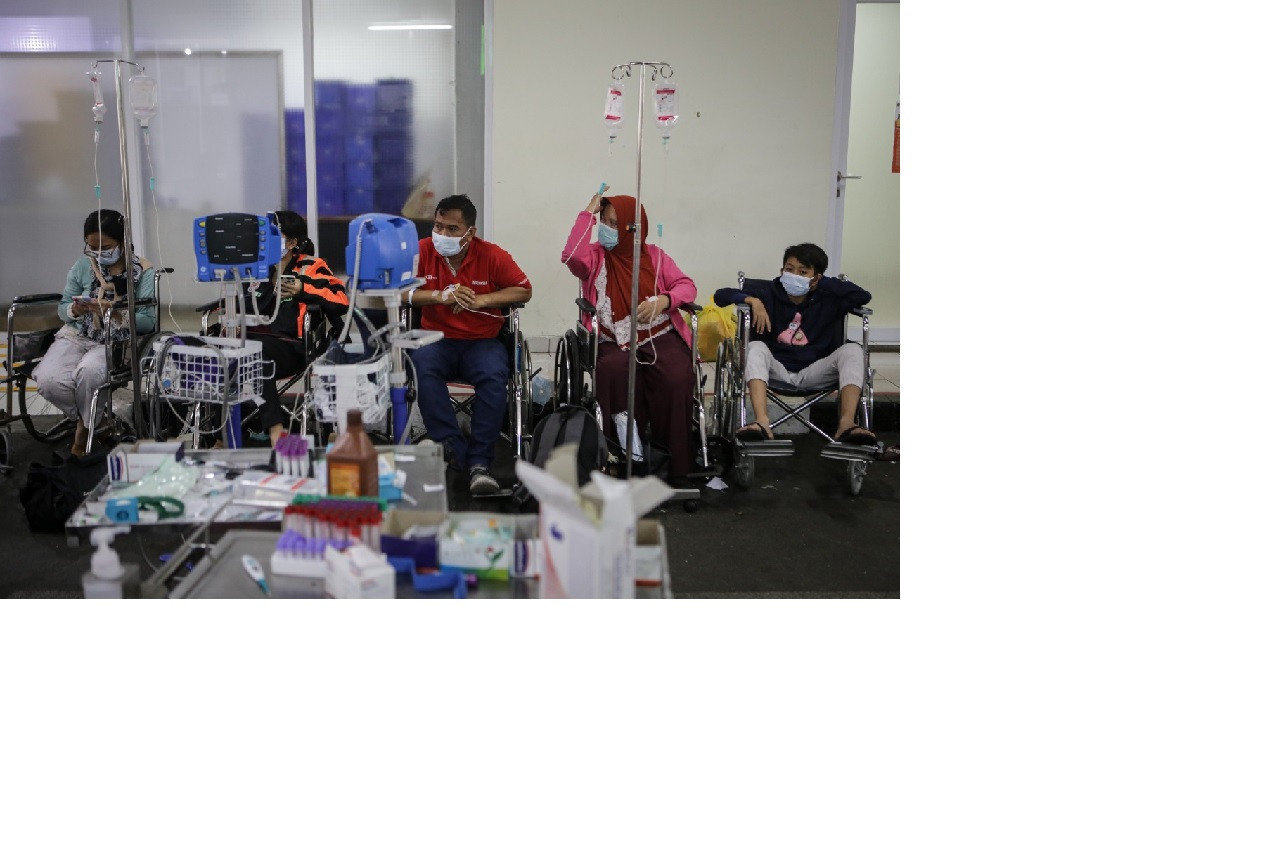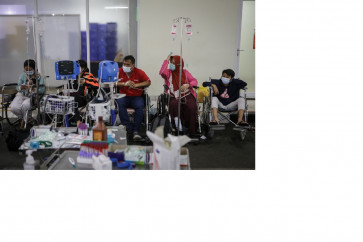Popular Reads
Top Results
Can't find what you're looking for?
View all search resultsPopular Reads
Top Results
Can't find what you're looking for?
View all search resultsGive ‘second, reduce harm’ a chance in post-pandemic era
In one study, vaccination markedly reduced adverse outcomes, with non-ICU hospitalizations, ICU hospitalizations and deaths decreasing by between 63 percent, 66 percent and 69 percent, respectively, across the same time period.
Change text size
Gift Premium Articles
to Anyone
T
he ancient Greek physician Hippocrates, in his book Of the Epidemics, famously says primum non nocere, or “first, do no harm”. This call has become one of the key mantras of modern medicine. However, views have been expressed that this idea is impractical, unrealistic and not even possible. So perhaps, in the context of contemporary public health, what may be a more pragmatic complementary idea to Hippocrates’ original call is a “second, reduce harm” idea. This has led to the development of the concept of “harm reduction” and some examples will be used to illustrate the argument for this idea.
First, the obvious and current example comes from the ongoing COVID-19 pandemic, which has seen more than 300 million cases and more than 5 million deaths globally. Unprecedented and rapid innovations in vaccines, medicines and diagnostics, developed in record time, are clear examples of interventions that have had a huge impact in reducing the serious harm caused by COVID-19 infection.
COVID-19 vaccines can prevent infection and, together with anti-viral medicines, prevent and ameliorate severe cases of the disease, hospitalizations and death among those affected, especially the elderly and those with underlying conditions. In one study, vaccination markedly reduced adverse outcomes, with non-intensive care unit (ICU) hospitalizations, ICU hospitalizations and deaths decreasing by between 63 percent, 66 percent and 69 percent, respectively, across the same time period.
At a higher level, widespread vaccine coverage and uptake protects not only the individual from harm but entire societies and populations. In addition, the harm reduction value of vaccines clearly extends beyond COVID-19 and applies to all vaccine-preventable diseases.
Second, it is a well-known fact that globally, nearly 3 million people die every year due to violence, road traffic accidents and injuries. With regard to reducing harms from road traffic accidents, the use of seat belts and motorcycle helmets, which is mandatory by law in many countries, has had a very significant impact on the prevalence, severity and mortality from road traffic accidents involving both cars and motorcycles, especially in developing countries.
Some estimates indicate that among drivers and front-seat passengers, seat belts reduce the risk of death by 45 percent, and cut the risk of serious injury by 50 percent. Similarly, a study analyzing helmet usage and road traffic death rates among motorcyclists showed that for each 10 percent increase in helmet usage, one life per 1 million inhabitants can be saved per year.
Third, many interventions have been successfully used in dealing with the harms associated with various forms of substance abuse. Alcohol abuse and alcoholism, for example, have been successfully addressed through counseling, behavioral therapy and motivational interviewing at the individual and family levels. In addition, some medications have also been approved by the United States Food and Drug Administration (FDA) as interventions for the treatment of alcohol dependence (e.g. varenicline).



















